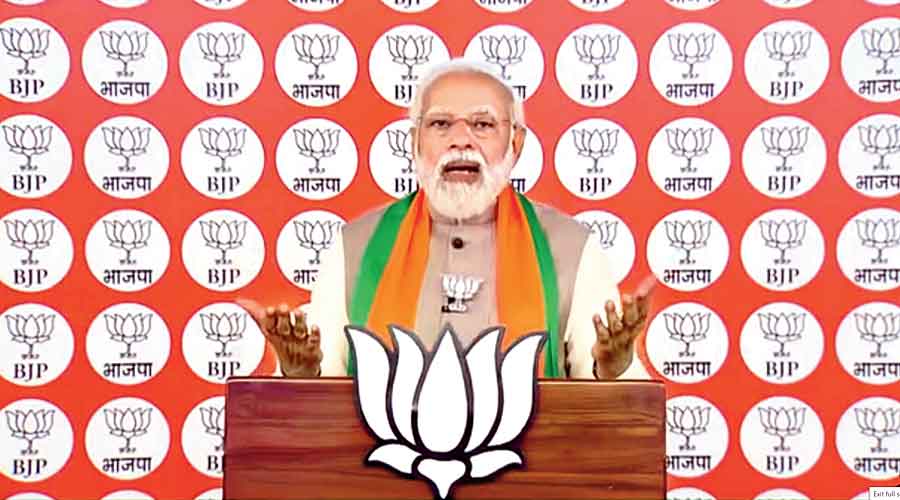Has the shadow of a colossal ruler fallen upon the republic? Narendra Modi’s government is unlikely to answer this question. It seldom answers queries. But voices in the Opposition seem to be apprehensive about New India being eclipsed by its tallest icon. The Congress leader, Rahul Gandhi, has alleged repeatedly that the orchestrated charisma of the prime minister has ended up alienating India’s current leadership from the problems faced by the common man. Concern about this perceived chasm was recently voiced by another parliamentarian. Responding to the president’s address that mentioned B.R. Ambedkar’s vision of an India that honoured the principle of equality, Manoj Jha, a Rajya Sabha member, reminded the august House that Ambedkar had also forewarned India about the perils of the personality cult. Mr Jha’s warning is pertinent, given India’s long enchantment with towering political leaders. Nearly every era of Indian politics has centred around a principal leader. So much so that the fragility of coalitions that have ruled India in brief interludes — they relied on the collective rather than the individual — was taken as a sign of the paucity of charismatic leaders. It can be argued that Mr Modi’s ascendancy and sustained public appeal embody the resurrection of India’s unfailing deification of heroes.
Icons, unfortunately, can be injurious to the health of a democracy. The burden of colossal figures weakens checks and balances instituted within a democratic polity, enervating its institutions. Policy, consequently, runs the risk of getting centralized. Be it demonetization or the controversial farm laws — they were, albeit, repealed later — India has had its share of such policy-making in recent times. Yet, what is worrying is that a number of functioning democracies — India, Brazil, Hungary, the Philippines and so on — have elected such leviathans, leading to the rise of an authoritarian form of democracy. There is an explanation for this. One of the persistent failures of the liberal political project around the world has been its inability to make countries more egalitarian. This has made it relatively easier for messiahs to emerge by pledging equality. One possible deterrent against this variant could be the strengthening of the ideal of dissent. Debates and dissent — they are integral to the democratic ethos — can go a long way in deflating the inflated chests of leaders. But for this to happen, the argumentative Indian and the argumentative media must rediscover their voice.










